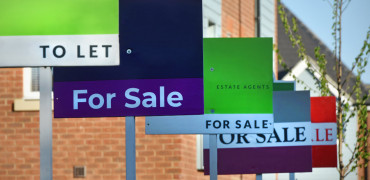A barrage of new rules and tougher regulation has rained down on the private rented sector in the past couple of years, but could this be overshadowed by a much bigger conflict over the introduction of rent controls?
Private landlords have long campaigned against the re-introduction of rent controls saying it would drive many of them out of the letting business and would ultimately make the housing crisis worse by reducing the number of properties available for rent and driving up demand.
Over the summer, reforms to prevent revenge evictions dominated the headlines.
Then in July the Government launched a consultation on opening up access to the rogue landlords’ database, allowing tenants and prospective tenants to check on landlords and letting agents. This exercise ends in mid October.
But a new report could raise temperatures among landlords.
It is calling for Manchester’s leaders to be given powers to cap private rents as increasing numbers of the city’s population are struggling to find a home they can afford.
It claims that house prices in the city have risen fourfold in the last 20 years.
How do we tackle the housing affordability crisis?
A devolution deal for Manchester
The report says that rents in the city centre now top £1,000 a month and that across the wider Greater Manchester region younger renters in particular are struggling with affordability.
It says 48 per cent have had to cut back on essentials to cover their housing costs, compared with 33 per cent across England. The city is also struggling with rising levels of homelessness.
As part of a new devolution deal for Greater Manchester, the report’s authors say politicians need powers to establish “rent pressure zones” – a form of rent capping – to tackle the city’s housing problem.
Already operational in Scotland, zoning enables a local authority to cap private rents in high-demand areas, to ensure that certain neighbourhoods do not become the preserve of the wealthy.
The report is based on research from the Royal Society for the Encouragement of Arts, Manufactures and Commerce commissioned by One Manchester, a major social landlord in the city. The RSA says there needs to be help for workers in the city’s gig economy, such as Deliveroo riders and Uber drivers, who struggle to obtain mortgages or even pass rental checks.
Housing pressures growing
Manchester has a larger private rented sector than the national average and the city council has a social housing waiting list of 13,000 households.
In Greater Manchester some 92,000 social homes have been lost through the Right to Buy since 1980. This has put more pressure on the city’s rental sector.
Average house prices in the city are 6.6 times average incomes. This is less than the English average of eight times, which is skewed by London, where, at the most extreme, house prices are more than 20 times average incomes.
But an average house in Manchester now costs £175,000 compared with £36,500 in 1995, meaning costs have more than quadrupled in 24 years.
The report also encourages Greater Manchester to implement minimum standards for access to private or neighbourhood outside space such as gardens, balconies and roof gardens.
Capital comparisons
These steps are similar to the extra powers which the London Mayor Sadiq Khan has been calling for to tackle the capital’s housing affordability crisis and to provide him with the sort of tools already available to the mayors of cities like Berlin and New York.
In the German capital, which has recently announced a five-year rent freeze, rents are controlled both within and between tenancies.
In a blueprint for the overhaul of London’s rental sector, Mayor Khan has already identified a series of devolved powers that he wants. These are expected to feature prominently in his campaign for re-election next year. They include:
- A universal register of landlords to access valuable data as well as enforce standards.
- Establishing a London private rent commission to design and implement an effective system of rent control.
- Implementing rent stabilisation measures such as caps on rent increases while the commission does its work.
The average private rent for a one-bedroom home in London is now more than the average for a three-bed home in every other region of England.
The proportion of Londoners who are renting privately has risen from just 11 per cent in 1990 to 26 per cent last year.
Election pledges
With the prospect of a general election growing, it is worth noting that Labour’s 2017 manifesto included a pledge to “introduce controls on rent rises” and to consider giving the London Mayor additional powers, given the particular pressures in the capital.
If such measures are repeated, they are likely to prove more popular with the capital’s electors than Jeremy Corbyn’s statements about extending the right to buy, to tenants in the private rented sector.
Neither of these are likely to be delivered by a future Conservative government, so it remains to be seen if they ever find their way onto the statute book but the odds have to be stacked against them.
What is more open, is whether the additional powers will be granted to Manchester or any other city regions which already have some devolution from Whitehall.
In Scotland where councils can apply “rent pressure zones”, it has the consequence that rent rises in the private sector can be limited to no more than the inflation rate.
Will the database grow
It remains to be seen if Prime Minister Johnson proceeds with making changes to the rogue landlords’ database.
The consultation exercise was launched by former Communities Secretary James Brokenshire, who is no longer in office. The closing date for responses was 12 October.
Back in July, Brokenshire said: “This database has the potential to ensure that poor-quality homes across the country are improved and the worst landlords are banned. Landlords should be in no doubt that they must provide decent homes or face the consequences.”
Earlier this year freedom of information (FOI) requests found that only four landlords had been added to it.
Brokenshire said he expected about 600 of the worst landlords to be added to the list.
We wait to see if tenants will be able to look up their landlords and letting agents by name on the database to check their track records, for any sex and drugs offences as well as failing to provide proper accommodation.
We will also wait to see if Manchester’s leaders (and the London Mayor) are given powers to cap private rents in their cities.
Patrick Mooney is editor of Housing Management and Maintenance magazine



